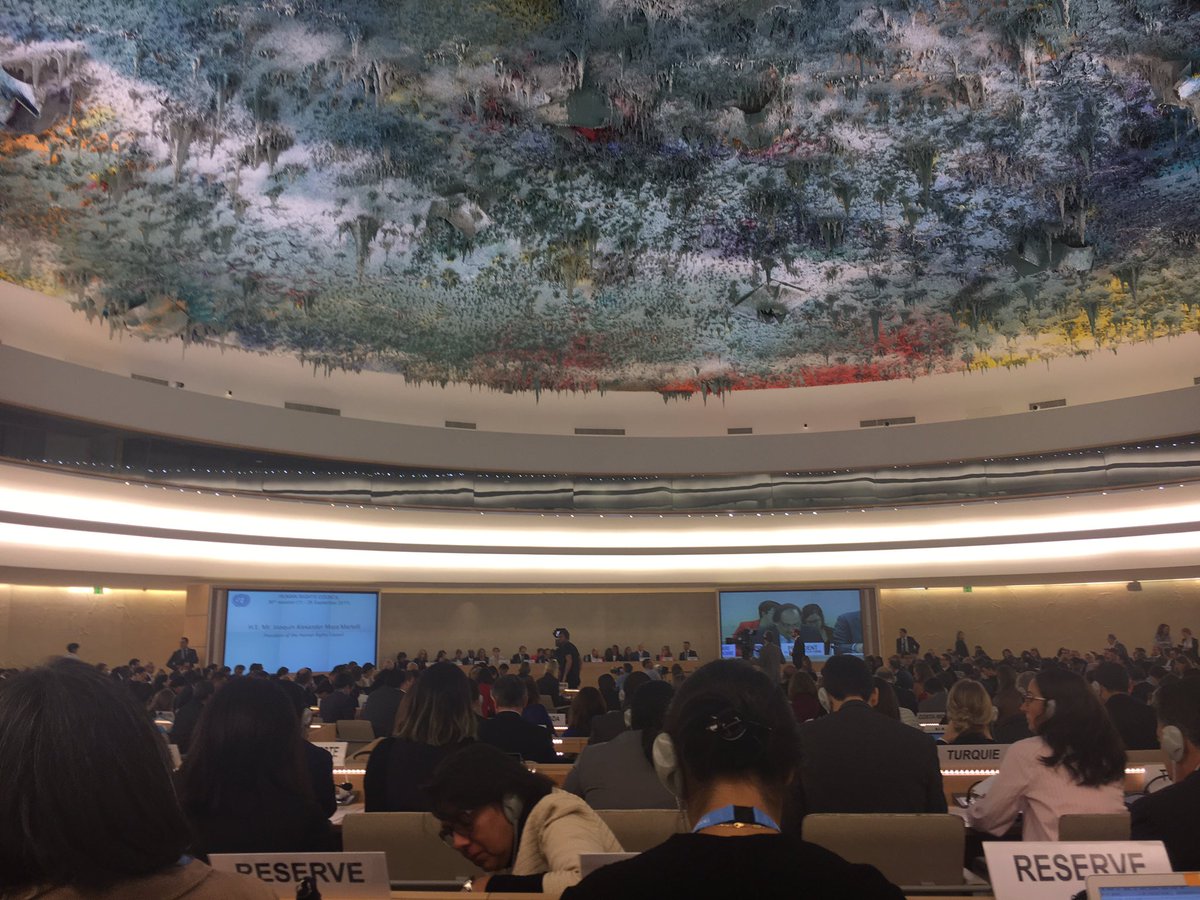HRC36: Saudi, Bahrain, Qatar and human rights violations

The 36th session of the Human Rights Council was held at the UN in Geneva. President of the Human Rights Council Mr. Joaquín Alexander Maza Martelli opened the session by giving the floor to the High Commissioner for Human Rights Zeid Ra'ad Al Hussein, who raised several concerns on the situation of human rights worldwide and the work of the Office of the High Commissioner for Human Rights (OHCHR).
High Commissioner Zeid stressed the importance to allow Special Procedures to visit countries of concern. Bahrain, who perpetually challenges the question of the universality of human rights and the international order, has denied access to UN Special Procedures visits for the last five years. Bahrain, as the other Gulf States, has been guilty of several human rights violations. The Commissioner touched upon the various issues that are hindering the universal availability of Human Rights, including on the stifling of civil societies in Bahrain and in other countries. The Bahraini government targets Human Rights activist, often imprisoning them without access to a lawyer and subjecting them to torture or abuse. These methods seek to deter free speech and cannot be tolerated in a democratic society.
The High Commissioner also discussed the serious humanitarian crisis in Yemen. He noted that the Saud-led coalition continuous airstrikes have claimed the life of several civilians and has also worsened the Cholera epidemic. He noted that the airstrikes of the coalition against health facilities as well as the air and sea blockade are the direct cause of this pandemic. After the oral update, the HRC held interactive dialogues with several Special Rapporteurs, such as Special Rapporteur on Truth and Justice and the Chairperson of the Working group for enforced and involuntary disappearances.
The President of the Human Rights Council then gave the floor to the Qatari foreign minister who commented on the current blockade which is affecting Qatari citizen’s Human Rights, including their right to family life, education, and health. He reiterated Qatar’s willingness to engage in mediation and find a resolution to this ongoing diplomatic and political conflict. He also noted that Qatar will fully cooperate with the Human Rights Council. However, this is not the reality on the ground as Qatar is systematically violating Human Rights of migrant workers for instance and denying freedom of speech.
The 3rd item of the 36th session of the Human Rights Council dealt with the report of the Working Group on Enforced and involuntary disappearances as well as the report of the Special Rapporteur on the promotion of truth, justice, reparation, and guarantees of non-recurrence, Mr. Pablo de Greiff. The Chairperson for the working group on enforced and involuntary disappearances noted that Bahrain has not cooperated and has not allowed its unfettered access to review the current situation in the kingdom.
ICSFT took the floor to address the issue of enforced disappearances in Saudi and Bahrain. ICSFT President, Dr. Adbulhameed Dashti denounced the enforced disappearances of human rights defenders in Saudi and Bahrain. He urged the government of Saudi Arabia to release Al-Alawi, recently subjected to enforced detention. ICSFT also noted that Saudi and Bahrain must put an end to involuntary disappearances and ensure an independent and fair justice system. The GCC countries are failing in providing that, there is no justice without a transparent judiciary.
The 3rd item was concluded with final remarks by both the chairperson and the Special Rapporteur of the Working Group on Enforced and Involuntary Disappearances. They both thanked and commanded NGOs for their statements and encouraged them to submit their report to them directly.
Follow @ICSFT on twitter for live updates on #HRC36.
